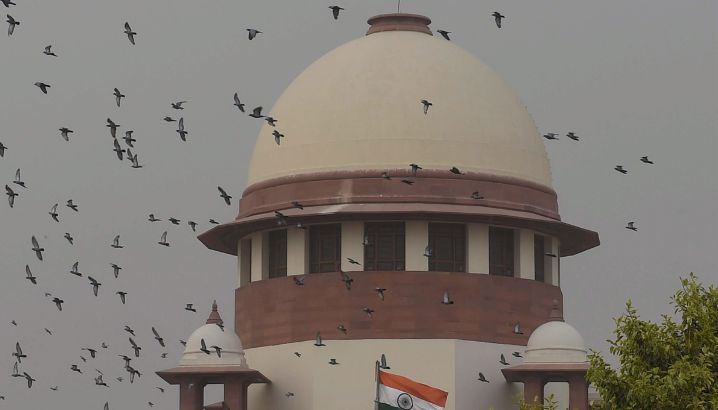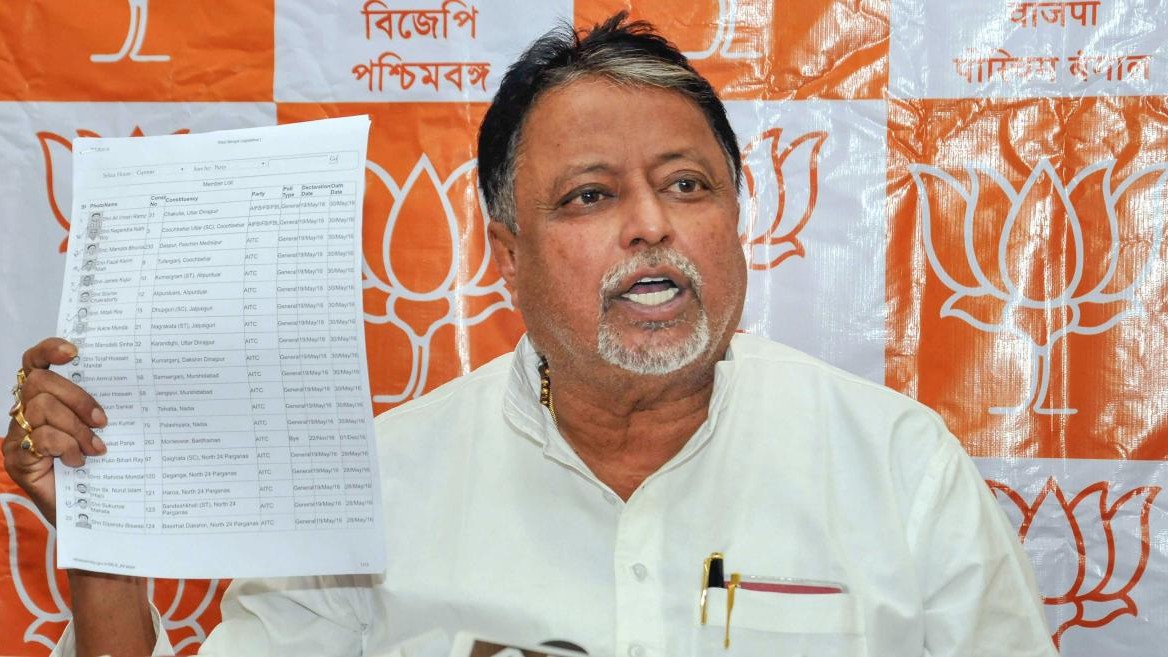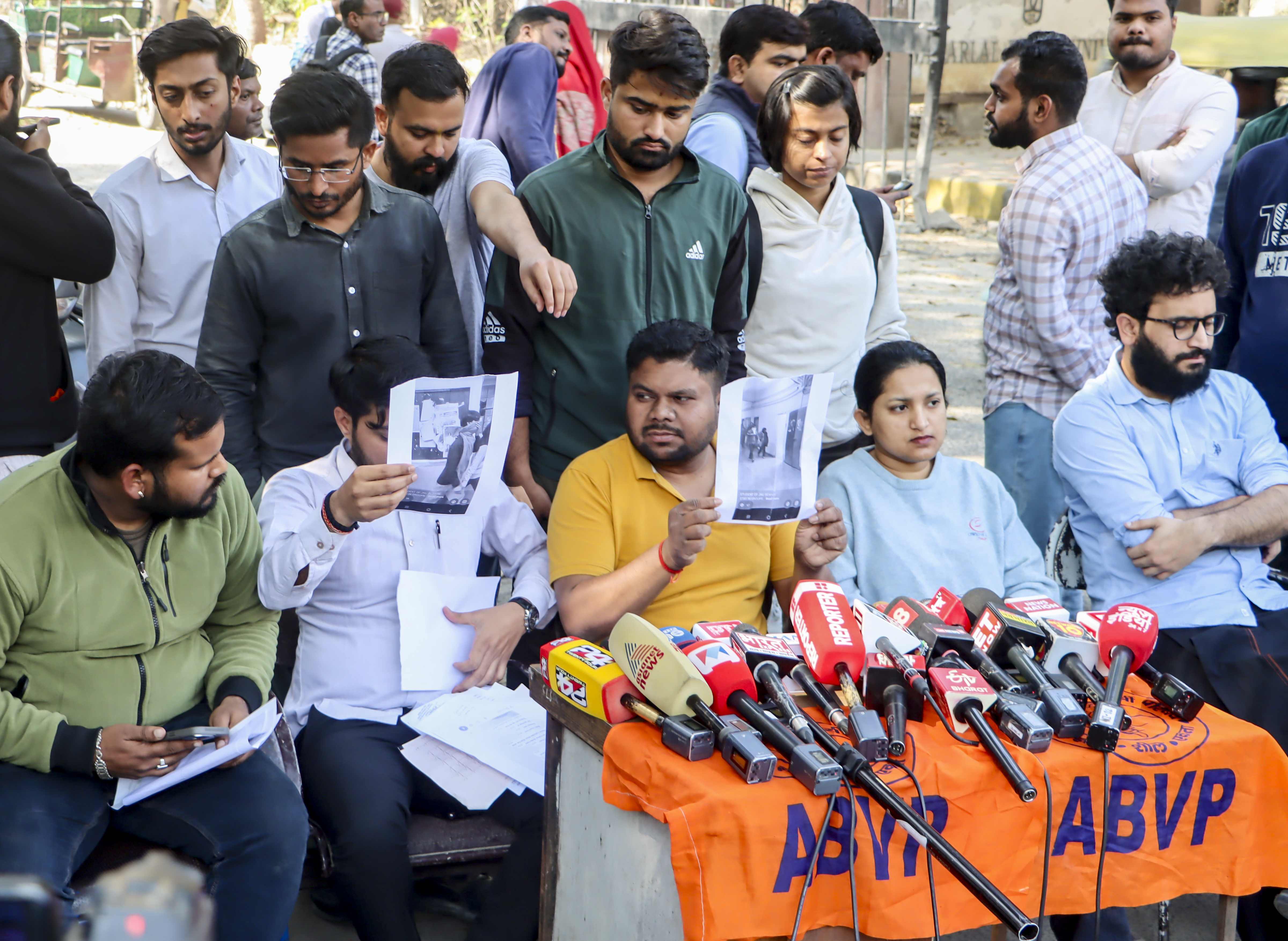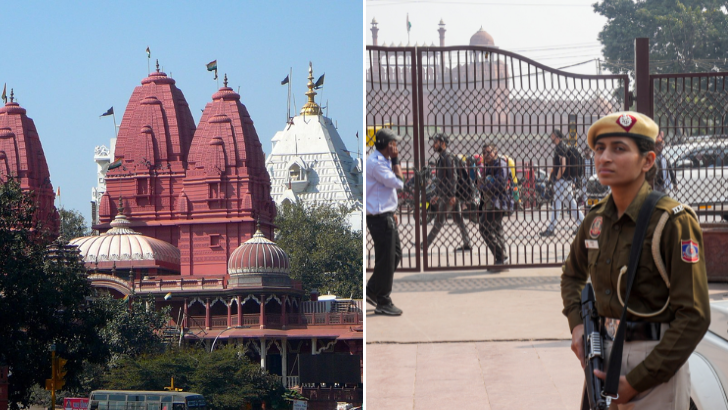SC reconstitutes three-judge bench to hear pleas against 2022 verdict upholding ED powers
The matter is listed for hearing on 7 May.
PTI
-
Supreme Court of India
New Delhi, 4 May
The Supreme Court has reconstituted a three-judge bench to decide
if its 2022 verdict upholding the Enforcement Directorate's powers to arrest
and attach property under the Prevention of Money Laundering Act needs
reconsideration.
The reconstituted bench of Justice Surya Kant, Justice Ujjal
Bhuyan and Justice N Kotiswar Singh will take up a batch of petitions seeking a
review of the 2022 verdict.
The matter is listed for hearing on 7 May.
Earlier, a bench of Justice Kant, Justice Bhuyan and Justice CT
Ravikumar was hearing the matter.
Justice Ravikumar superannuated on 5 January.
On 6 March, after the pleas were listed before a two-judge bench,
Justice Kant told the lawyers appearing in the matter that it was wrongly
listed and assured them that a new three-judge bench would shortly take up the
issue.
The top court in July 2022 upheld the Enforcement Directorate's
(ED) powers of arrest and attachment of property involved in money laundering,
search and seizure under the Prevention of Money Laundering Act (PMLA).
In August that year, the top court agreed to hear pleas seeking
review of its verdict and observed that two aspects -- not providing an
Enforcement Case Information Report (ECIR) and reversal of the presumption of
innocence -- "prima facie" required reconsideration.
Observing it was common the world over that money laundering was a
"threat" to the good functioning of a financial system, the apex
court upheld the validity of certain provisions of the PMLA, underlining it was
not an "ordinary offence".
The top court had said authorities under the 2002 law were
"not police officers as such" and the ECIR could not be equated with
an FIR under the Code of Criminal Procedure (CrPC).
It had said supply of an ECIR copy in every case to the person
concerned was not mandatory and it was enough if the ED, at the time of arrest,
disclosed the grounds for it.
The verdict came on a batch of more than 200 petitions filed by
individuals and other entities questioning various provisions of the PMLA, a
law the opposition often claims is weaponised by the government to harass its
political adversaries.
Section 45 of the PMLA, which deals with offences to be cognisable
and non-bailable and have twin conditions for bail, is reasonable and does not
suffer from the vice of arbitrariness or unreasonableness, the top court had
said.
Leave a Reply
Your email address will not be published. Required fields are marked *




















